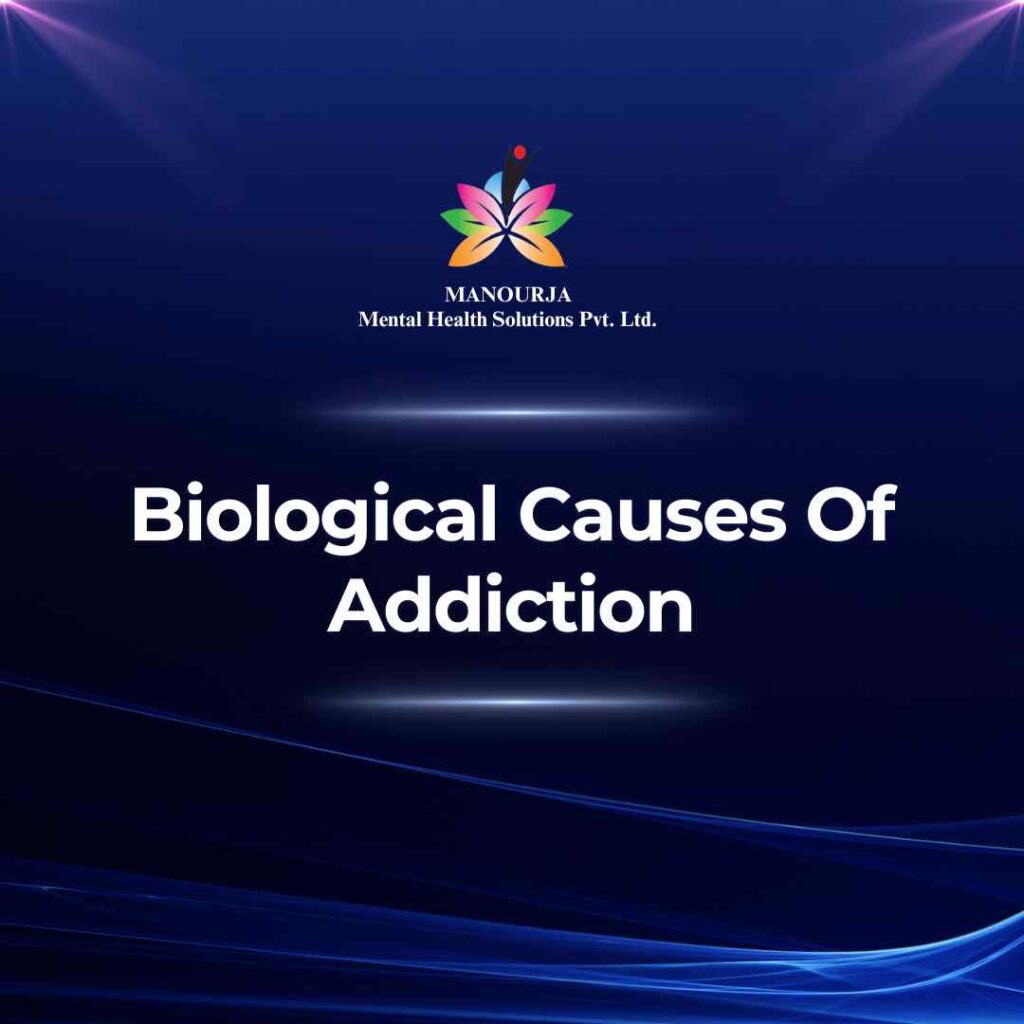Biological Causes of Addiction

Addiction is a complex condition influenced by a combination of genetic, neurobiological, and environmental factors. Understanding the biological causes provides insight into the intricate mechanisms that contribute to the development and persistence of addictive behaviors.
Here are key biological causes of addiction:
Genetic Predisposition
Genetic factors play a significant role in addiction susceptibility. Individuals with a family history of addiction may have a genetic predisposition that increases their likelihood of developing addictive behaviors.
Dopamine Dysfunction
The brain’s reward system, particularly the release of dopamine, plays a crucial role in addiction. Dysregulation in dopamine levels can lead to an impaired reward response, contributing to the pursuit of substances or behaviors that induce pleasure.
Brain Adaptations
Chronic substance use or engagement in addictive behaviors can lead to structural and functional changes in the brain. Neuroplasticity, or the brain’s ability to adapt, contributes to the reinforcing nature of addiction.
Hijacking the Reward System
Addictive substances or behaviors can hijack the brain’s natural reward system, creating an artificial and heightened sense of pleasure. This hijacking reinforces the desire to repeat the behavior.
Impaired Decision-Making
Chronic substance use can impair the prefrontal cortex, affecting decision-making, impulse control, and judgment. This impairment contributes to continued substance use despite negative consequences.
Neurochemical Changes
Imbalances in serotonin and norepinephrine levels, which are neurotransmitters involved in mood regulation and stress response, can contribute to the development and maintenance of addiction.
Stress Hormones
Chronic stress and substance use can dysregulate stress hormones such as cortisol. Elevated stress hormones may contribute to the vulnerability to addiction and the persistence of addictive behaviors.
Environmental Impact on Genes
Substance use and environmental factors can lead to epigenetic modifications, altering gene expression. These modifications can influence an individual’s susceptibility to addiction.
Natural Painkillers
Substance use, particularly with opioids, can lead to the release of endorphins, the body’s natural painkillers. The desire to experience this euphoria contributes to the cycle of addiction.
Brain Circuit Dysfunction
Addiction involves disruptions in various brain circuits related to reward, motivation, and impulse control. These dysfunctions contribute to the reinforcement of addictive behaviors.
Inherited Metabolic Factors
Individual differences in how the body metabolizes substances can influence addiction susceptibility. Some individuals may be more prone to developing addiction due to variations in metabolic processes.
Understanding the biological causes of addiction underscores the multifaceted nature of this condition. Biological factors interact with environmental influences, shaping an individual’s risk and response to addictive substances or behaviors. Comprehensive approaches to addiction treatment often address both the biological and psychosocial aspects to promote lasting recovery.
At MANOURJA, we believe in the transformative power of counseling. Our experienced therapists offer a safe and supportive space where you can explore your thoughts, emotions, and challenges. Through personalized counselling sessions, we’ll work together to develop coping strategies, build resilience, and achieve lasting positive change. Discover the path to a healthier, happier you with MANOURJA counselling services.
MANOURJA Rehabilitation Services
At MANOURJA, we’re dedicated to helping you in rebuild your life, after difficult times. Our rehabilitation services focus on understanding what you need to move forward, whether you’re recovering from addiction, trauma, or any psychological – social challenges. We create personalized plans, that are all about helping you, regain your strength and find hope again. With a caring team by your side, you’ll have the support to make real progress and take steps toward a brighter, healthier future
